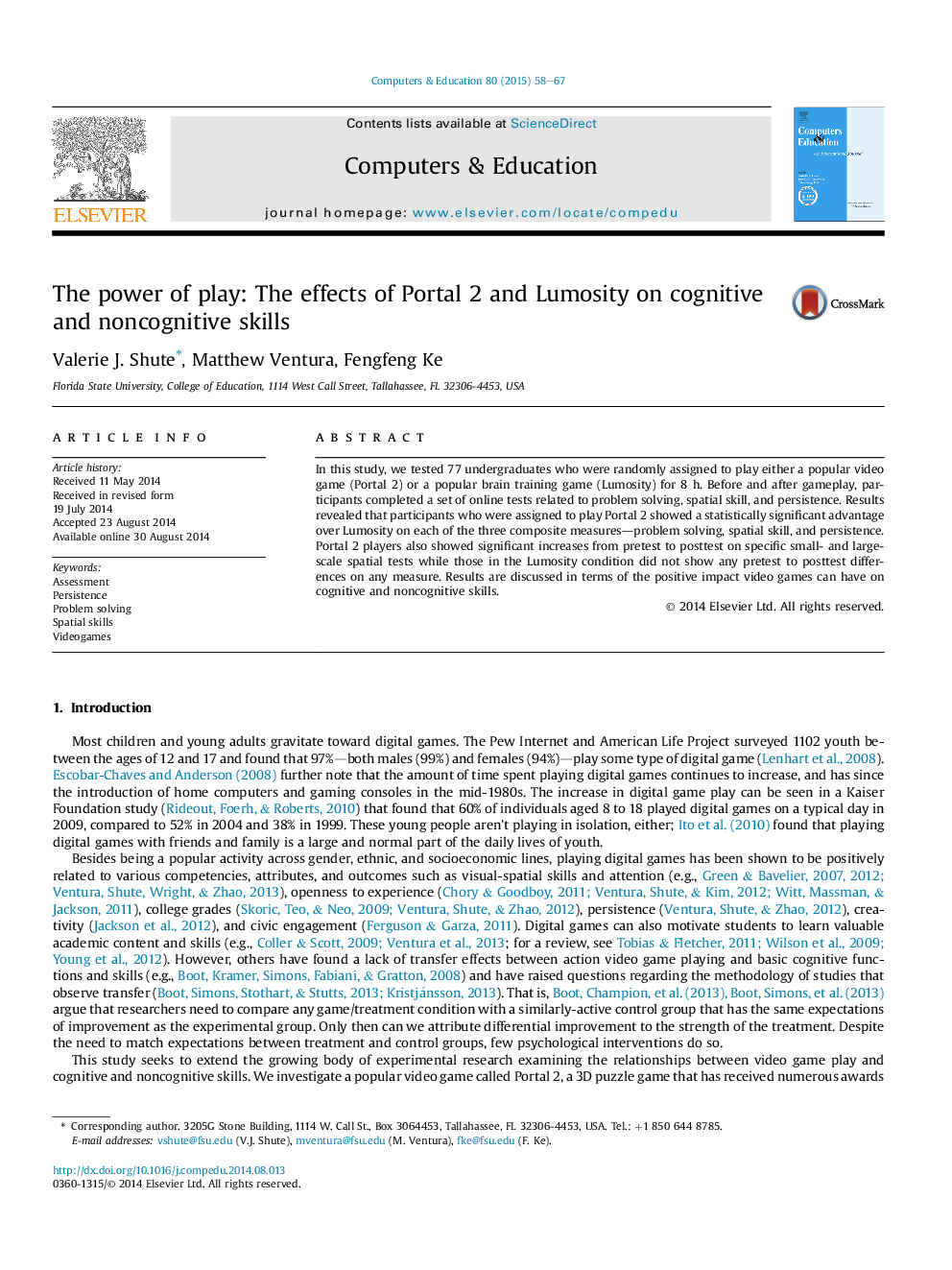| Article ID | Journal | Published Year | Pages | File Type |
|---|---|---|---|---|
| 6835097 | Computers & Education | 2015 | 10 Pages |
Abstract
In this study, we tested 77 undergraduates who were randomly assigned to play either a popular video game (Portal 2) or a popular brain training game (Lumosity) for 8Â h. Before and after gameplay, participants completed a set of online tests related to problem solving, spatial skill, and persistence. Results revealed that participants who were assigned to play Portal 2 showed a statistically significant advantage over Lumosity on each of the three composite measures-problem solving, spatial skill, and persistence. Portal 2 players also showed significant increases from pretest to posttest on specific small- and large-scale spatial tests while those in the Lumosity condition did not show any pretest to posttest differences on any measure. Results are discussed in terms of the positive impact video games can have on cognitive and noncognitive skills.
Related Topics
Social Sciences and Humanities
Social Sciences
Education
Authors
Valerie J. Shute, Matthew Ventura, Fengfeng Ke,
